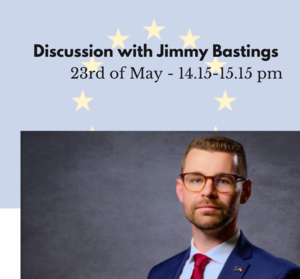News
Buchpräsentation "Frauen und Führung in der Europäischen Union"
Vertretung der Europäischen Kommission,
Unter den Linden 78, 10117 Berlin
16.30 Uhr - 18 Uhr, 20. Juli
Die Veranstaltung zur Buchpräsentation "Frauen und Führung in der Europäischen Union" der Europäischen Kommission findet am Montag, den 20. Juli in der Vertretung der Europäischen Komission in Berlin.
An der Buchpräsentation werden Dr. Miriam Hartlapp, Professorin Freie Universität Berlin, Dr. Eva Heidbreder, Lehrstuhlnhaberin für Regieren im Europäischen Mehrebenensystem an der Universität Magdeburg, Dr. Henriette Müller, Assistant Professor an der New York University Abu Dhabi und Dr. Ingeborg Tömmel, Professorin em. Universität Osnabrück teilnehmen.
Master Tage 2022
Zwischen dem 30. Mai und dem 2. Juni veranstaltet die OvGU die Master Tage 2022.

Die Veranstaltung bietet allen Masterinteressierten die Möglichkeit, Fragen zu klären und sich über die verschiedenen Masterstudiengänge an der Universität Magdeburg zu informieren.
Die Master Tage 2022 bietet auch die Möglichkeit, sowohl online als auch vor Ort teilzunehmen und auch der Masterstudiengang European Studies wird auf der Messe vorgestellt!
European Studies auf der 'Master Days 2023'
Zwischen dem 24. April und 25. April veranstaltet die OvGU die Master Days 2023.
Die Veranstaltung bietet allen Masterinteressierten die Möglichkeit, Fragen zu klären und sich über die verschiedenen Masterstudiengänge an der Universität Magdeburg zu informieren. Auch der Masterstudiengang European Studies wird online auf der Messe vorgestellt!

Der Masterstudiengang European Studies wird online, am 24. April ab 14 Uhr vorgestellt.
Living in times of crisis and change, our master's degree in European Studies helps you to analyse, evaluate and influence the policymaking process of the European Union. Our interdisciplinary lens focuses on a political, sociological and economic or cultural perspective. It puts special emphasis on key analytical skills and the self-organised application of academic and soft skills. Graduates work in national, European or international administrations, companies, foundations, NGOs and associations – or pursue further academic qualifications. The MA is open to students with different prior qualifications - in social sciences, economics and/or cultural studies - in two, alternative tracks with different requirements and focal points.
Think critically about today's challenges and develop practical solutions with us in Magdeburg.
Nehmen Sie an unserer Präsentation teil:
Zoom-Meeting Daten: https://ovgu.zoom.us/j/2136609107
Meeting-ID: 213 660 9107
Kenncode: 373210
Alle Studieninteressierte sind herzlich eingeladen! Hier können Sie sich das Programm der Master Days 2023 ansehen und sich auch anmelden.
Calls for Papers der Landeszentrale für Politische Bildung: Digitale Medien und Politik
Für eine neue Online-Publikation im Rahmen des Formats CampusPUBLIK ist die Landeszentrale für politische Bildung Sachsen-Anhalt auf der Suche nach wissenschaftlichen Qualifikationsarbeiten von Studierenden und wissenschaftlichen Mitarbeitenden aus Sachsen-Anhalt zum Thema "Digitale Medien und Politik" (Hausarbeiten, Bachelor-, Masterarbeiten oder vergleichbare Abschlüsse bzw. Beiträge).

Detaillierte Informationen und bereits publizierte Beiträge im Rahmen von CampusPublik finden Sie hier.
Interview mit Jimmy Bastings, dem Büroleiter der Europaabgeordneten Esther De Lange
23. Mai - 14.15 Uhr - G40-415 -
Das Seminar "Die EU und die Gleichstellung der Geschlechter" organisiert ein Interview mit Jimmy Bastings, dem Büroleiter der Europaabgeordneten Esther De Lange. Unser Treffen findet am 23. Mai von 14.15 bis 15.15 Uhr in Raum 415, Gebäude 40, statt.







